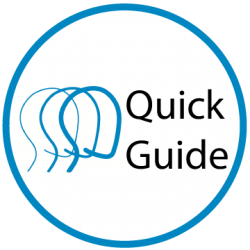Your Cart
Self-Care and Resilience

What is caregiver resilience?
Resilience is your ability to withstand, recover, and sometimes grow when faced with adversity; it is an active process of enduring and successfully coping. It’s bouncing back after a crisis, and bouncing forward to adjust to a “new normal.” This capacity to adapt and cope with adversity is present to varying degrees in every person, no matter how tumultuous external events or inner feelings may be.
As a caregiver for an individual with a brain injury there are many effects on your health and well-being, and it's critical to take care of yourself in this journey.
Why is caregiver self-care so important?
There’s a reason why, when you’re on an airplane, they tell you to put your own oxygen mask on first before you assist anyone else. That’s because if you’re not getting oxygen, then you can’t help someone else. Caring for yourself is one of the most important—and one of the most often forgotten—things you can do as a caregiver. If you are taking care of yourself, the person you are caring for benefits too!
One of the major struggles of being a caregiver is managing your stress. To start, learn to recognize the “warning signs of stress” such as problems sleeping, irritability, being forgetful. Then identify what is causing the stress and if it is something you can change.
Sometimes, the first step is to identify what is in your way…what’s keeping you from taking care of yourself? For example, do you think you are being selfish if you put your needs first, or do you feel inadequate if you ask for help? Caregivers can have misconceptions that increase their stress; thinking you are only deserving of love, attention, and respect when you’re providing care to someone else is untrue. Your mind tends to believe what you tell it, so tell it you deserve a break, a meal out, time to exercise, to sleep…you’ll be amazed at the difference once you give yourself permission to take care of yourself.
There are many things we can do to improve our ability to be resilient: getting enough exercise, having relationships with others and being social, recognizing our own strengths and weaknesses and accepting limitations, maintaining a positive outlook, eating right and getting enough sleep.
How can I be more resilient?
There are many things we can do to improve our ability to be resilient: getting enough exercise, having relationships with others and being social, recognizing our own strengths and weaknesses and accepting limitations, maintaining a positive outlook, eating right and getting enough sleep.
- Get educated. Learning about the disease your loved one has and finding out about what is happening now and what will happen in the future with this disease will help you plan.
- Use community resources. The more you let these services help you, the less you have to do.
- Take a break from care giving and get out of the house once in a while. Make a date to go to the movies, take a walk, meet a friend for lunch. Do something not related to caregiving.
- Get support. Attend a support group, have a buddy you can call just to let off steam and complain. Seek counseling if necessary; it’s ok.
- Read a book, meditate, pray, garden, knit, get a massage, take a long bath.
- Take care of your Go to the doctor, get routine exams and flu shots, get enough sleep, and eat your fruits and vegetables.
- Ask for and accept help when offered. No one can do this alone.
- Change “guilt” to “regret.” Guilt is you did something wrong, regret is that you are in a difficult situation and sometimes you have to make difficult decisions, but they are not wrong.
- Forgive yourself—often. You cannot be a perfect caregiver, all day, every day.
- Watch comedies, share jokes with friends; find ways to keep your sense of humor on a daily basis.
Learn more: Coping with Loss and Change.
Learn about some additional tips on the National Family Resiliency Center website.
Resilience Activities and worksheets
Printable version of Self-Care and Resilience Quick Guide
Visit the Family Caregiver Alliance Website
Virginia Department for Aging and Rehabilitative Services Brain Injury Services Coordination Unit
www.caregiver.org – Family Caregiver Alliance
